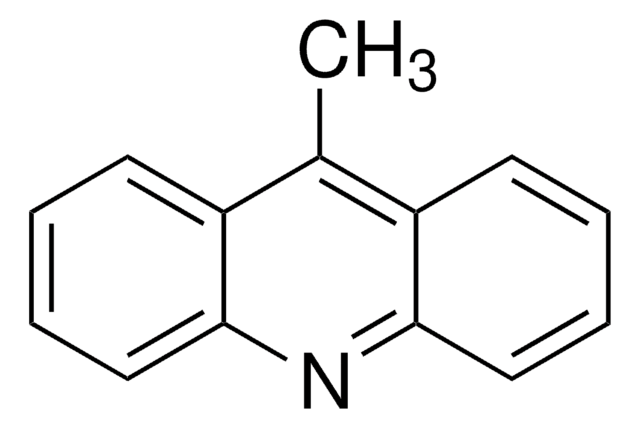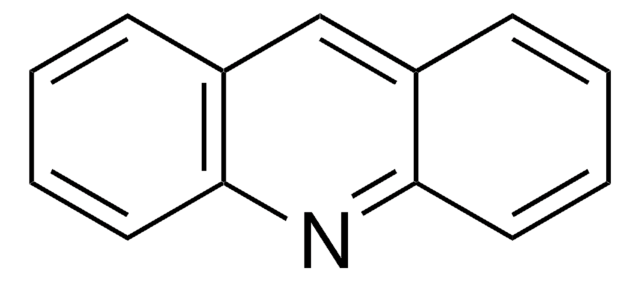143650
5H-Dibenz[b,f]azepine
97%
Synonym(s):
Iminostilbene
About This Item
Assay
97%
mp
196-199 °C (lit.)
solubility
ethyl acetate: soluble 25 mg/mL, clear, yellow to orange
SMILES string
N1c2ccccc2C=Cc3ccccc13
InChI
1S/C14H11N/c1-3-7-13-11(5-1)9-10-12-6-2-4-8-14(12)15-13/h1-10,15H
InChI key
LCGTWRLJTMHIQZ-UHFFFAOYSA-N
Looking for similar products? Visit Product Comparison Guide
Related Categories
General description
Application
- As a starting material to prepare pharmacologically important dibenzoazepine-pyridazine derivatives.
- To synthesize 3-chloro-1-(5H-dibenz[b,f]azepine-5yl)propan-1-one, a key intermediate used to prepare aminophenol derivatives.
- In the synthesis of dibenzazepine derivatives.
- As a starting material to synthesize olefinic multidentate ligand, which is used to prepare Rh(I) complexes.
Biochem/physiol Actions
Signal Word
Warning
Hazard Statements
Precautionary Statements
Hazard Classifications
Acute Tox. 4 Oral - Aquatic Chronic 2
Storage Class Code
11 - Combustible Solids
WGK
WGK 2
Flash Point(F)
Not applicable
Flash Point(C)
Not applicable
Personal Protective Equipment
Certificates of Analysis (COA)
Search for Certificates of Analysis (COA) by entering the products Lot/Batch Number. Lot and Batch Numbers can be found on a product’s label following the words ‘Lot’ or ‘Batch’.
Already Own This Product?
Find documentation for the products that you have recently purchased in the Document Library.
Customers Also Viewed
Our team of scientists has experience in all areas of research including Life Science, Material Science, Chemical Synthesis, Chromatography, Analytical and many others.
Contact Technical Service



![(S)-(+)-N-(3,5-Dioxa-4-phosphacyclohepta[2,1-a;3,4-a′]dinaphthalen-4-yl)-dibenzo[b,f]azepine ≥95% (elemental analysis)](/deepweb/assets/sigmaaldrich/product/structures/575/489/d54360f9-5a59-43f2-bc44-42f5fa92b588/640/d54360f9-5a59-43f2-bc44-42f5fa92b588.png)

